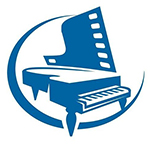It takes little time running a piano studio to realize that teachers must nurture not only the student relationship but also the parents. Not only does that double your contact time, both relationships are very different. For example, weekly lessons afford the teacher anywhere from thirty minutes to one hour of one-on-one time with a single student. Not only do we learn their strengths and witnesses we also identify their likes and dislikes, other activity passions and learning style.
Our time with the parent is limited, however. Even if the parent remains in the lesson, hopefully they are listening in the background and not interfering with the lesson! Communication with the parent tends to be short and sweet–often parents themselves are rushing off to shuttle another child to another activity. Unfortunately this can produce misunderstandings. Have you ever thought lessons were going along splendidly only to discover the parent shocks you with dissatisfaction? It can be a frustrating experience! I have found that much of this stems from parents who have unrealistic expectations of their child’s progress.
This past year, I was fortunate to teach a wonderful, talented nine year old girl. She participated in everything–every festival, masterclass, and recital. Everyone was just smitten by her musicianship and mature playing for her tender nine years. I believed everything was going along just splendidly. Once the fall registration forms were due, I tracked down the mother at the lesson close to the due date to remind her of the deadline. Imagine my shock when the mom told me they were stopping lessons! WHAT??? The mother said perhaps they were expecting too much. According to the father (who sat alongside her at practice but NEVER attended a lesson) my start pupil was “using wrong fingering” then arguing about it and missing notes. In her lessons, note and rhythm notes were far and few between. Somehow the parents decided it better she stop lessons. Everyone else that heard her saw and experienced a budding young musician! I spoke with my student privately and she told me she absolutely did not want to stop lessons. Because she argued, she had to stop. WOW! That’s all I could utter. Such a waste of talent. I spent our last lesson putting a positive spin on our 18 months together and told the mom I was so honored to have taught her daughter. At the recital, the father rushed her out at the end of the program and did not stay for the reception. Not a word was spoken. He would not meet my eye.
Situations such as this are difficult to accept and often have no logical reason. I did not see the value in begging the parents to stay. I did mention to the mother that had I been clued in to the issues at home we could have easily solved the issues together. She agreed that communication was lacking. There are times such as this that defy logic. The best we can do is wish our student and their family well and hope that the student enters the system again at some point. Should you not be allowed to have that last lesson for closure, and nice solution at least for the teacher is to send along a nice note addressed to the student. Tell them how much you enjoyed teaching them and how you valued them as a student. It just may be that the parent has told the child another reason for stopping lessons and they think it was the teacher that could no longer teach them. Your kind note just may be a positive force in how the student views their time in your studio. It can color their perception of studying again in the future. With a note to the student, you get a chance to say “thank you” and make them feel wanted and special.
As teachers we run our studios, but we cannot always influence parents in a positive way. You will feel better. We all need to consider how often and when we check in to the parent. The lesson learned for me this time around was not to assume that just because the child was playing beautifully and always well prepared, does not mean that the parents’ perception of their child’s performance matches yours. It may seem irrational and make little sense, but in the end, we all work with the general public. There will likely be a small percentage of parents that are difficult to please and look at their child’s practicing and playing in a completely different light.
